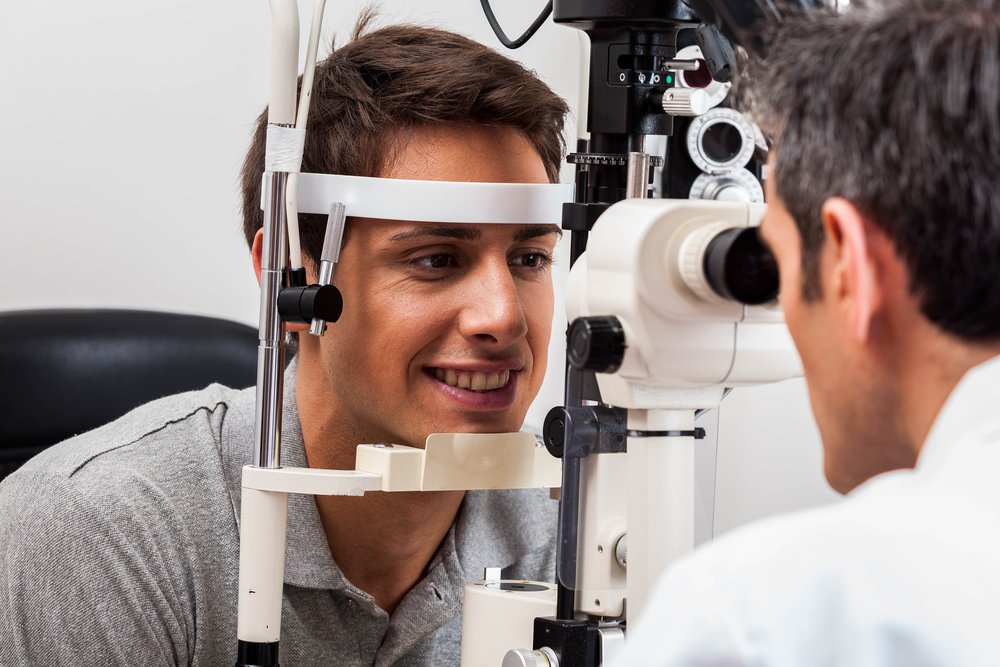
When most people think about eye exams, they tend to focus on getting a new glasses prescription or checking for nearsightedness. But a comprehensive eye exam can do far more than determine how clearly you see. It can actually serve as a window into your overall health, revealing early signs of systemic conditions long before other symptoms appear.
What Is a Comprehensive Eye Exam?
A comprehensive eye exam is a thorough evaluation of your vision and eye health. Unlike a basic vision screening, which only checks how well you see, a comprehensive eye exam assesses a wide range of factors, including visual acuity, eye muscle function, depth perception, peripheral vision, and how your eyes respond to light. It also involves a detailed examination of the internal and external structures of the eye using specialized tools and imaging technology. Comprehensive eye exams play a crucial role in preserving your vision and identifying potential health concerns early.
Unlike many parts of the body, the eyes provide a direct view of your blood vessels, nerves, and connective tissues. This makes them incredibly valuable in detecting early indicators of chronic diseases. Here’s a closer look at some of the health issues that can be uncovered during a comprehensive eye exam.
Diabetes
One of the most common conditions detected through an eye exam is diabetes. Diabetic retinopathy, which occurs when high blood sugar levels damage the blood vessels in the retina, may be visible even before a person knows they have diabetes. Early detection can prompt timely intervention and reduce the risk of vision loss and other complications.
High Blood Pressure
Changes in the blood vessels of the retina can also signal high blood pressure (hypertension). During an eye exam, your optometrist may notice narrowed arteries, bleeding, or swelling - all signs that could indicate elevated blood pressure and warrant further medical evaluation.
High Cholesterol
Yellowish deposits or plaques in the blood vessels of the eyes can be a sign of high cholesterol. These deposits can sometimes lead to blockages that may cause sudden vision loss or even signal an increased risk of stroke.
Autoimmune Conditions
Autoimmune diseases such as lupus, multiple sclerosis, or rheumatoid arthritis may reveal themselves in the eyes. For instance, inflammation of the optic nerve or recurring episodes of dry eye could be linked to underlying immune system dysfunction.
Thyroid Disease
Thyroid problems, especially hyperthyroidism (such as in Graves’ disease), can affect the muscles and tissues around the eyes, leading to bulging eyes, dryness, or double vision. These signs can be picked up during a routine eye evaluation.
The Importance of Annual Eye Exams
Even if your vision feels fine, regular comprehensive eye exams are essential. Many health conditions that affect the eyes do not present symptoms until they’ve progressed significantly. Routine exams give your optometrist the chance to catch issues early, when they’re most treatable. Our advanced diagnostic tools and thorough evaluations help us monitor your ocular health and potentially uncover signs of broader systemic concerns.
Take Charge of Your Health, Starting with Your Eyes
A comprehensive eye exam is one of the simplest and most effective ways to detect early signs of both eye-related and systemic conditions. By staying proactive with regular checkups, you’re not just protecting your vision but also supporting your long-term wellness.
Schedule your comprehensive eye exam with EyeXcel and experience care that goes beyond eyesight. Contact our office in Hardin Valley, located in Knoxville, Tennessee, by calling (865) 243-8260 to book an appointment today.










